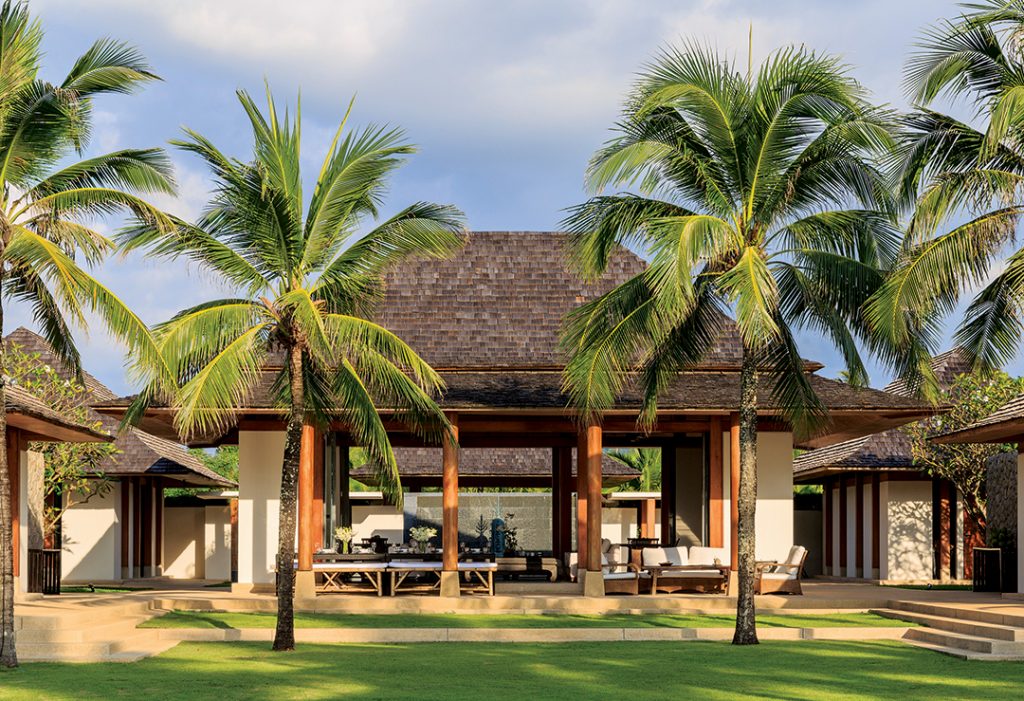Anyone visiting Thailand is assured of a warm welcome along with a wide choice of glorious coastal properties should they be tempted to linger a little longer.
Thailand has no less than 1,430 islands with Koh Phi Phi Lee, one of its most famous, having featured in the film The Beach. The south of the country is renowned for its many beautiful beaches and islands in the Gulf of Thailand and Andaman Sea. Due to this ideal scenario, opportunities for water activities abound such as river and whitewater rafting, sailing, fishing, scuba diving, and snorkeling to experience some of the world’s top-ranked underwater vistas.
 As for prime properties, Robert Green, managing director of Sphere Estates, says, “The Thai real estate market has had its ups and downs over the past decade; especially the luxury holiday home market which is primarily seen as a lifestyle purchase. However, international demand for secure, well located homes, particularly those within managed estates and resorts, has risen in the last two years. The prime second home destinations being Phuket and Koh Samui. An increase in flight capacity of Samui Airport from 36 to 50 flights per day has given a boost to the island’s tourism as well as investors, both local and international, who are once again eyeing the resort destination for real estate investment.
As for prime properties, Robert Green, managing director of Sphere Estates, says, “The Thai real estate market has had its ups and downs over the past decade; especially the luxury holiday home market which is primarily seen as a lifestyle purchase. However, international demand for secure, well located homes, particularly those within managed estates and resorts, has risen in the last two years. The prime second home destinations being Phuket and Koh Samui. An increase in flight capacity of Samui Airport from 36 to 50 flights per day has given a boost to the island’s tourism as well as investors, both local and international, who are once again eyeing the resort destination for real estate investment.
“In recent years, minor changes in Thai law have allowed non-residents to explore the Thai real estate market. A foreigner can have a 30-year renewable lease, under which the buyer registers at the Land Office an option to renew the lease contract indefinitely, for further 30-year periods. A foreigner cannot own the land on which the villa sits freehold unless through a company with majority ownership being Thai.
“Despite obstacles which affect investment from foreigners, a strong Baht, red tape and restrictive laws, political stabilisation and a slight boost to the economy has improved the outlook for the market heading into the next two years. Low property taxes make Thailand an appealing place for foreign buyers and while the country does have restrictive foreign ownership laws, they are still more lax compared to other nearby countries.”
There is no capital gains tax in Thailand, but if an owner decides to sell their property within five years from the date of purchase, they will have to pay an income tax typically ranging between one and three per cent of the sale price, depending on how many years they have actually owned it.

Luke McCormick, founder of Icon Luxury Residences, comments, “The high-end market for second homes in Thailand remains bullish. There is slower growth in expatriate numbers and change in the mix of nationalities. Thailand remains popular with the Hong Kong expat community, British, French and German buyers, as well as Middle Eastern and Russian clients. There is clearly growing interest from China, both with the many developments coming to market as well as the super prime villa segment.”
Mr McCormick reports that
155 villas were sold in Phuket in 2017, with 100 of those being from
the mid-to-high end market. Over half of the newly launched villa projects offered rental schemes of 5-7% yield per year. Around 50 new villas were completed in Phuket last year, with another 800 or so planned or under construction.
“Koh Samui still represents great value and demand outstrips supply for luxury villas,” concludes Mr McCormick. “While Phuket has reached maturity, Koh Samui still has room to grow, with prices 20% lower than Phuket, and still relatively inexpensive compared to more developed areas in Asia. Annual growth of 5-10% is expected in Koh Samui up to 2020, with rental yields of 5-10%. Thai rentals yields are some of the highest in Asia.”
